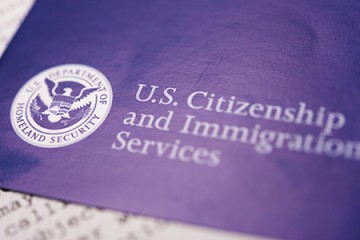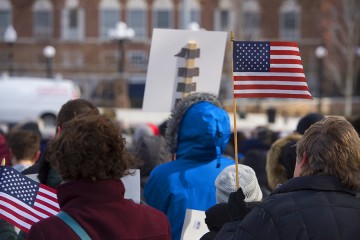Johns Hopkins University is among 17 leading universities that filed an amicus brief Monday challenging President Donald Trump's executive order on immigration, saying the travel ban has "serious and chilling implications" for students, faculty, and scholars from around the world.
In court papers filed in federal court in Brooklyn, New York, in support of a lawsuit by the attorney general of New York, the schools say the Jan. 27 executive action—which barred travel to the U.S. by refugees and citizens of seven countries—"threatens [the schools'] continuing ability to attract these individuals and thus to meet their goals of educating tomorrow's leaders from around the world."
"By prohibiting persons from freely traveling to and from this country," they add, "the Executive Order divides students and their families, impairs the ability of American universities to draw the finest international talent, and inhibits the free exchange of ideas."
Johns Hopkins enrolls more than 4,000 international students.
Other schools joining the request are Brown, Carnegie Mellon, University of Chicago, Columbia, Cornell, Dartmouth, Duke, Emory, Harvard, the Massachusetts Institute of Technology, Northwestern, the University of Pennsylvania, Princeton, Stanford, Vanderbilt, and Yale.
On Jan. 27, President Trump signed an executive order blocking entry to the U.S. by individuals from seven countries—Iran, Iraq, Libya, Somalia, Sudan, Syria, and Yemen. The order also immediately suspended the U.S. Refugee Admissions Program for 120 days.
Last week, the U.S. 9th Circuit Court of Appeals unanimously upheld a lower court's ruling blocking enforcement of the order. The Trump administration has signaled that it will challenge that ruling.
In a message sent to the Johns Hopkins community on Feb. 1, JHU President Ronald J. Daniels wrote that the executive order "takes our country down the ominous path of erecting barriers not on the basis of a demonstrated security threat but on the basis of religion.
"In this, the order stands in unambiguous opposition to our country's long-cherished values and ideals," he added. "Openness, freedom of ideas, opportunity for the many, not the few. Values that lie, too, at the core of this country's great universities."
Posted in University News
Tagged immigration











